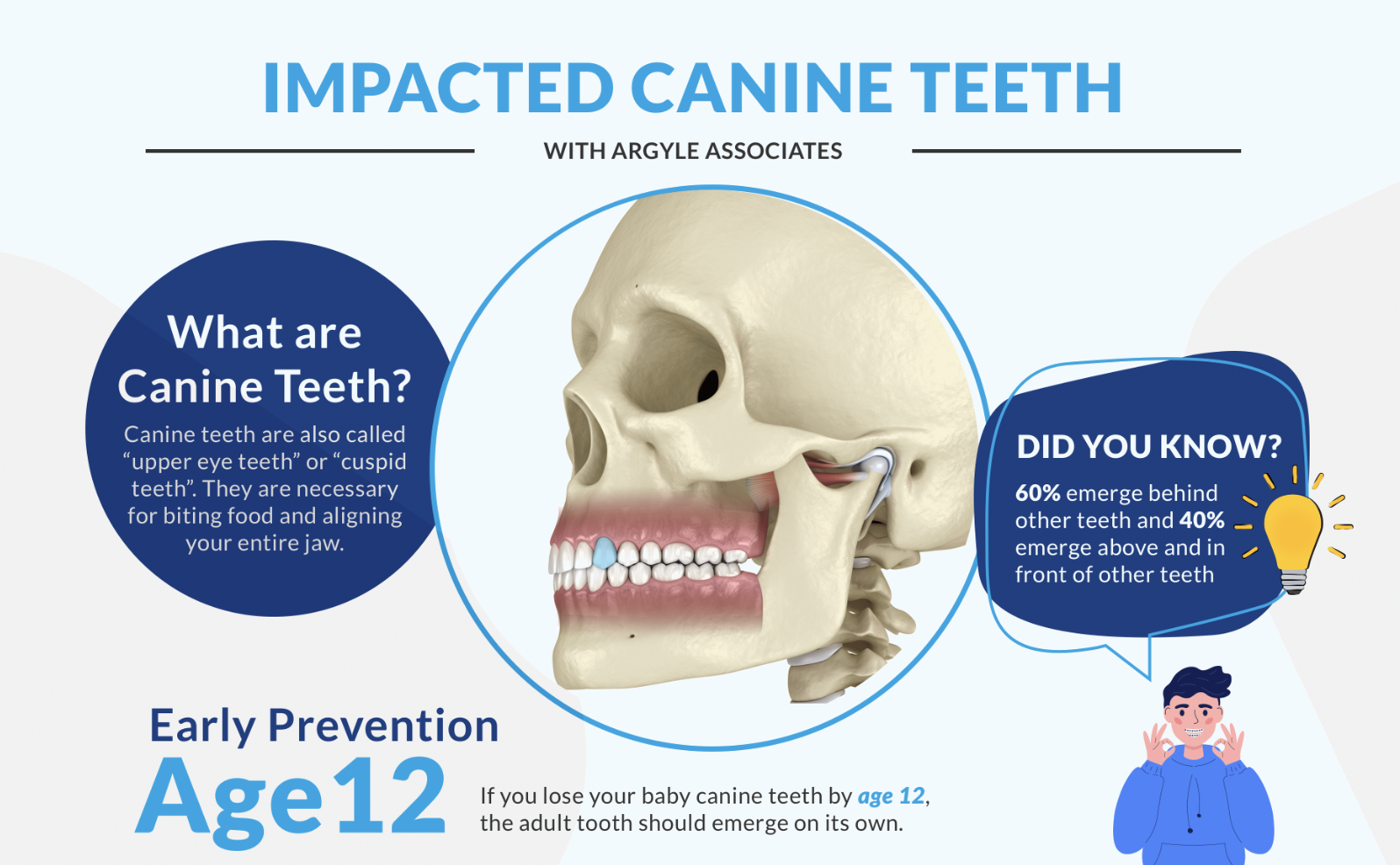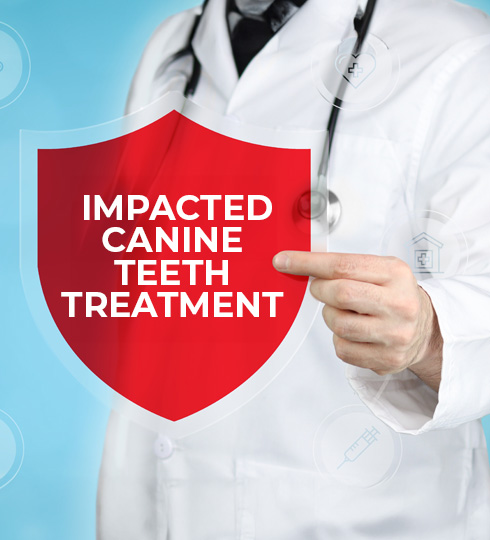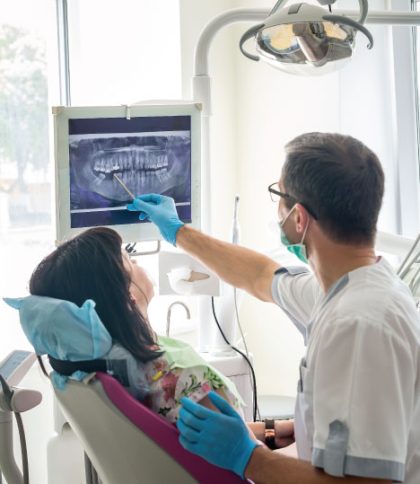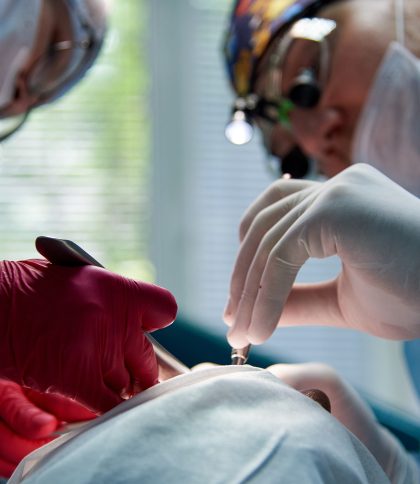Procedures
Impacted Canine Teeth Treatment


Impacted Canine Teeth Treatment

Impacted Canine Teeth Treatment FAQ
WHAT ARE THE CANINE TEETH?
Canine teeth, also known as “upper eye teeth” or “cuspid teeth,” play a crucial role in biting food and aligning the entire jaw.
WHAT HAPPENS WHEN A CANINE TOOTH IS IMPACTED?
HOW ARE IMPACTED CANINE TEETH TREATED?
If the dentist or orthodontist sees missing adult teeth, they will look for the reasons. They may find that something is blocking the eyetooth or that the other teeth are crowding it.
If a cuspid tooth becomes impacted, it must be helped to emerge. Treatments may include:
- Orthodontic treatment: braces can be used to move teeth so that there is space for the canine teeth to emerge.
- Surgical treatment: our Oral & Maxillofacial Surgeons may be required to extract teeth to make room. We may extract baby teeth that have remained in the mouth for too long. Or, we may need to extract adult teeth to make room for the canines.
For more information about impacted canine teeth, check out our video gallery.
WHAT HAPPENS IF YOU LEAVE AN IMPACTED CANINE TOOTH?
Impacted canine teeth can result in issues affecting not only the canine teeth but also neighboring teeth and gums. Malpositioned canine teeth may lead to the resorption or erosion of the roots of adjacent teeth, typically the permanent lateral incisor. Failure to address an impacted canine tooth can advance to a point where the damage is irreparable, making the affected teeth susceptible to loss.
In some instances, impacted canine teeth may be attributed to abnormal growth such as a tumor or cyst. Without intervention, the impacted teeth and the surrounding area may become infected, swollen, and painful. Furthermore, they can compromise the strength of the jaw, hinder normal dental function, and exert uncomfortable pressure on neighboring teeth and structures. Therefore, it is crucial to seek treatment for impacted canine teeth.
HOW LONG DOES IT TAKE TO BRING DOWN AN IMPACTED TOOTH?
The duration required to bring down an impacted canine tooth varies for each patient. Some individuals witness proper eruption of their impacted canine teeth within a few months, whereas others may take over a year for the canine teeth to fully and appropriately come in.
WHY DO SOME CANINE TEETH GET IMPACTED?
- Overcrowding of the teeth: When your front teeth are overcrowded due to misalignment or other reasons, there may not be enough room for your canine teeth to properly erupt.
- Extra teeth: Some people are born with extra teeth, which can block your canines from erupting.
- A growth on your gums: While cysts and tumors are not very common, they can block your canine teeth from coming in.




